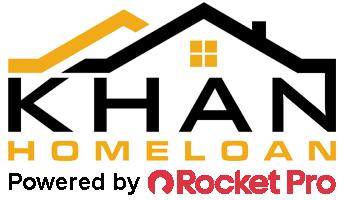Your Complete Guide to Finding the Best Mortgage Lender: Key Tips, Strategies, and Expert Insights
When you’re in the market for a new home, securing the right mortgage lender can be one of the most critical decisions you make. With the myriad of options available, knowing how to find the best mortgage lender involves careful consideration of several factors, from interest rates and loan terms to customer service and lender reputation. This guide will walk you through everything you need to know to confidently select a lender that suits your financial situation and long-term goals.
1. Understanding the Importance of Choosing the Best Mortgage Lender
Before diving into how to find the best mortgage lender, it’s crucial to understand why this decision is so important. Your lender can significantly impact not only the cost of your mortgage but also the overall experience of buying and owning a home.
Key Features to Consider:
- Interest Rates: Different lenders offer varying interest rates, which directly affect your monthly payments and the overall cost of the loan.
- Loan Terms: Lenders may offer different loan term lengths (15, 20, 30 years), which will determine how long you’re paying off the loan and how much interest you’ll pay over time.
- Fees and Closing Costs: Some lenders have higher fees or closing costs than others, which can add up to thousands of dollars by the time your loan is finalized.
- Customer Service: A lender’s responsiveness and willingness to help you throughout the process can make a huge difference, particularly for first-time buyers.
2. Types of Mortgage Lenders: Who Can Help You Secure a Loan?
When looking at how to find the best mortgage lender, it’s important to understand the different types of lenders available. Each type has its own pros and cons, and the right one for you will depend on your personal circumstances and preferences.
Types of Mortgage Lenders:
- Banks and Credit Unions: These traditional lenders often offer a range of mortgage options and may provide discounts for existing customers. They also tend to have local branches, making face-to-face service possible.
- Mortgage Brokers: Brokers act as intermediaries between you and various lenders. They can help you shop around for the best rates and loan terms but may charge a fee for their services.
- Online Lenders: Digital mortgage lenders have gained popularity due to their convenience and often competitive rates. They typically offer a streamlined application process and faster approvals.
- Non-Bank Lenders: These financial institutions, like Quicken Loans or Rocket Mortgage, focus solely on providing home loans and often have more flexible lending requirements.
3. Researching Lenders: Steps to Find the Best Mortgage Lender
To ensure you’re getting the best deal, researching potential lenders is a must. Start by compiling a list of possible lenders and narrowing down your choices based on key criteria.
Steps for Researching Lenders:
- Compare Interest Rates: One of the first things you’ll want to compare is the interest rate offered by each lender. This can have a significant impact on your monthly payment and the total cost of the loan.
- Read Reviews and Testimonials: Customer reviews can give you a good sense of what it’s like to work with a particular lender. Look for patterns in the feedback, such as comments on customer service or the ease of the application process.
- Check with the Better Business Bureau (BBB): The BBB provides ratings for businesses based on customer complaints and other factors. A high BBB rating can be a good indicator of a reputable lender.
- Request Loan Estimates: Once you have a few top contenders, request loan estimates from each lender. This will allow you to compare not just interest rates, but also fees, loan terms, and any other costs.
4. Evaluating Interest Rates: The Key to Affordable Home Financing
Interest rates play a significant role in determining the affordability of your mortgage, so understanding how to evaluate and compare them is essential when figuring out how to find the best mortgage lender.
Features to Evaluate:
- Fixed vs. Adjustable Rates: Fixed rates stay the same throughout the life of the loan, while adjustable rates may fluctuate based on market conditions. Consider whether you prefer the stability of a fixed rate or the potential for savings with an adjustable rate.
- APR (Annual Percentage Rate): The APR includes the interest rate as well as any additional lender fees, giving you a better picture of the true cost of the loan.
- Locking in Rates: Some lenders offer rate locks, which allow you to secure a particular interest rate for a set period. This can be a smart move in a fluctuating rate environment.
5. Understanding Loan Programs: Which Mortgage Option is Best for You?
Mortgage lenders often offer various loan programs that cater to different financial situations. Knowing which loan program is right for you is key to finding the best lender.
Popular Loan Programs:
- Conventional Loans: These are the most common type of mortgage and are offered by most lenders. They typically require a higher credit score and down payment but offer competitive interest rates.
- FHA Loans: Backed by the Federal Housing Administration, FHA loans are ideal for first-time buyers or those with lower credit scores. They require a smaller down payment but may have higher insurance premiums.
- VA Loans: Available to veterans and active-duty military personnel, VA loans offer favorable terms, including no down payment and no private mortgage insurance (PMI) requirements.
- USDA Loans: These loans are designed for buyers in rural areas and offer 100% financing to qualified borrowers.
6. Customer Service and Support: Why It Matters in Choosing a Mortgage Lender
Customer service often gets overlooked when buyers focus primarily on rates and fees, but it’s an important factor in how to find the best mortgage lender. Your experience during the home buying process can be greatly affected by the level of support you receive from your lender.
What to Look for in Customer Service:
- Responsiveness: The best mortgage lenders are quick to respond to your questions and concerns, providing clear communication throughout the loan process.
- Transparency: A good lender will be upfront about all costs and fees, avoiding any hidden surprises at closing.
- Personalized Service: Some lenders go above and beyond to provide a personalized experience, tailoring loan recommendations to fit your unique financial situation and goals.
7. Pre-Approval and Pre-Qualification: Getting Ahead in the Mortgage Process
Before you start house hunting, it’s a good idea to get pre-approved or pre-qualified for a mortgage. This not only shows sellers that you’re serious about buying but also helps you narrow down your lender options.
Differences Between Pre-Approval and Pre-Qualification:
- Pre-Qualification: This is an initial step where the lender gives you an estimate of how much you can borrow based on self-reported financial information.
- Pre-Approval: A more formal process, pre-approval requires the lender to verify your financial details and gives you a more accurate loan amount. Pre-approval often carries more weight with sellers.
8. Questions to Ask Potential Lenders: Ensuring You Make the Right Choice
When interviewing potential lenders, asking the right questions can help you feel confident in your decision.
Essential Questions to Ask:
- What types of loan programs do you offer?
- What is your interest rate and APR for someone with my credit profile?
- What are your closing costs, and can you provide a breakdown?
- Do you offer rate locks, and what are the terms?
- How long does it typically take to close a loan with your company?
- What type of customer support do you offer during the loan process?
9. Comparing Lender Offers: Making the Final Decision
Once you’ve gathered loan estimates and done your research, it’s time to make a final decision on how to find the best mortgage lender. Comparing offers side by side allows you to make an informed choice.
Factors to Consider When Comparing Lenders:
- Total Loan Costs: Look beyond the interest rate to consider the total cost of the loan, including fees, closing costs, and any potential penalties.
- Loan Flexibility: Consider whether the lender offers flexibility in loan terms, payment schedules, or refinancing options.
- Reputation and Trust: Choose a lender you feel comfortable with and one that has a solid reputation in the industry.
Final Thoughts
Learning how to find the best mortgage lender requires patience and diligence, but it can pay off significantly in the long run. By researching lenders, comparing offers, and prioritizing customer service, you can secure a mortgage that fits your budget and sets you up for long-term success in homeownership. With the right lender by your side, your journey to buying a home will be smoother and more rewarding, allowing you to focus on what matters most: finding the perfect place to call home.

